Find Help
More Items From Ergsy search
-
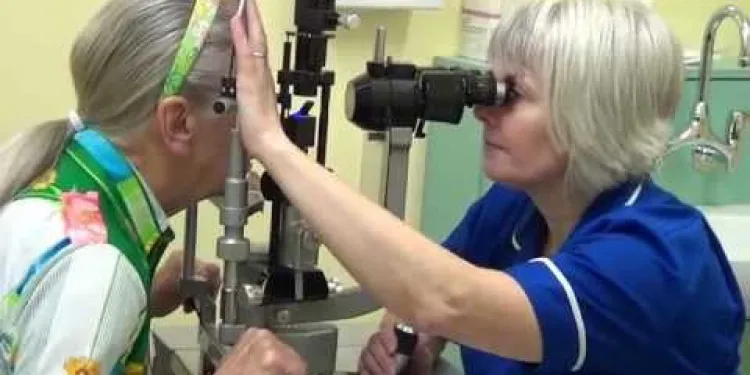
Your Cataract Operation
Relevance: 100%
-

Cataract surgery can resolve life long short-sightedness?!
Relevance: 57%
-

On the day of your cataract surgery
Relevance: 55%
-

Having an operation at the Children’s Centre
Relevance: 39%
-
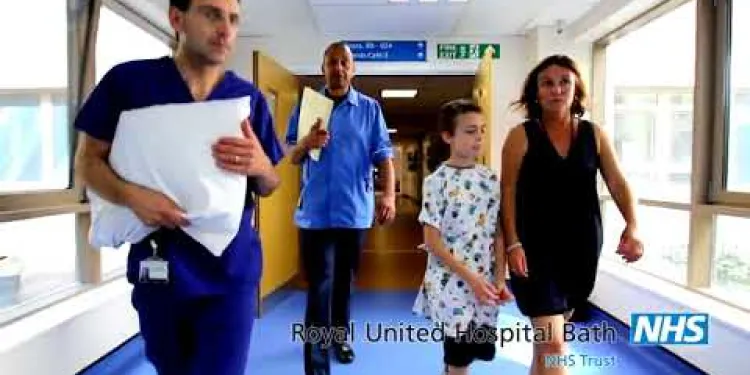
Having an anaesthetic for your operation - for over 8s
Relevance: 37%
-
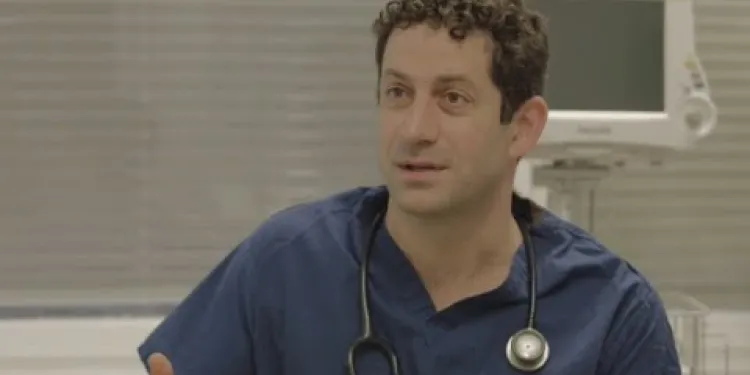
What to expect on the day of your operation
Relevance: 36%
-

Having an operation or procedure at the Royal Free London
Relevance: 36%
-

How often are operation waiting times updated?
Relevance: 36%
-
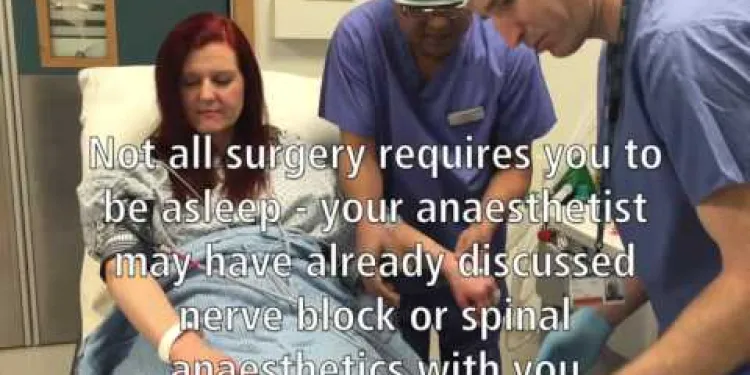
Your Operation at East Surrey Hospital
Relevance: 35%
-

Are there specific resources for urgent operation waiting times?
Relevance: 35%
-

Are there apps available to check operation waiting times?
Relevance: 34%
-

Does my doctor have access to operation waiting times?
Relevance: 34%
-

Can I get information on average waiting times for operations?
Relevance: 34%
-

Can I find operation waiting times in healthcare performance reports?
Relevance: 33%
-

Having an operation
Relevance: 33%
-
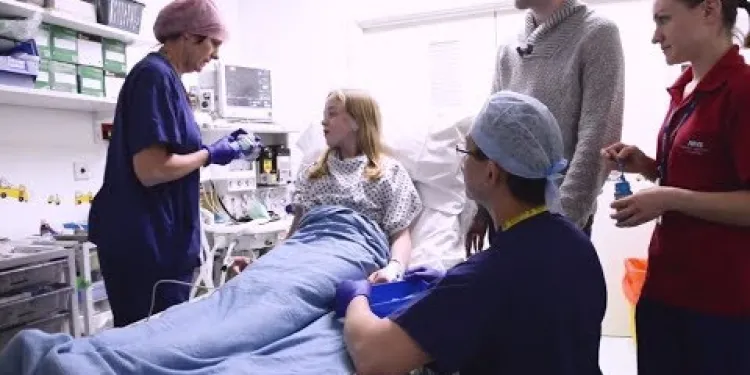
Having an operation in Oxford Children's Hospital with YiPpEe
Relevance: 33%
-

Do private hospitals have shorter waiting times for operations?
Relevance: 32%
-

How can I find current waiting times for operations in my local hospital?
Relevance: 31%
-

How can I find information on waiting times for an operation in my area?
Relevance: 30%
-

Are waiting times for operations the same across all hospitals?
Relevance: 29%
-

Can I appeal a long waiting time for my operation?
Relevance: 29%
-

What steps can a company take if shareholder disputes begin to impact business operations?
Relevance: 26%
-
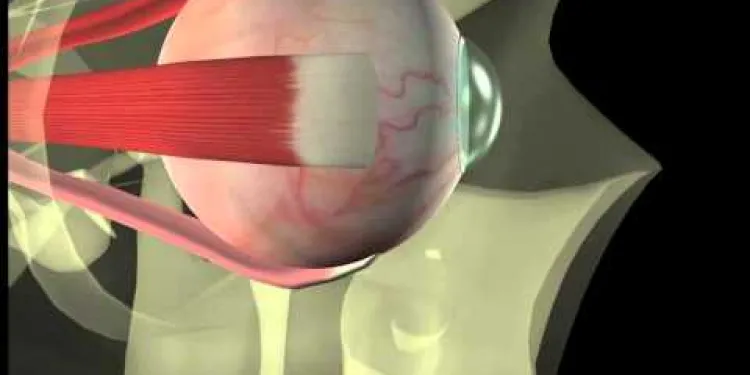
Thyroid eye disease. Squint surgery - The operation
Relevance: 25%
-
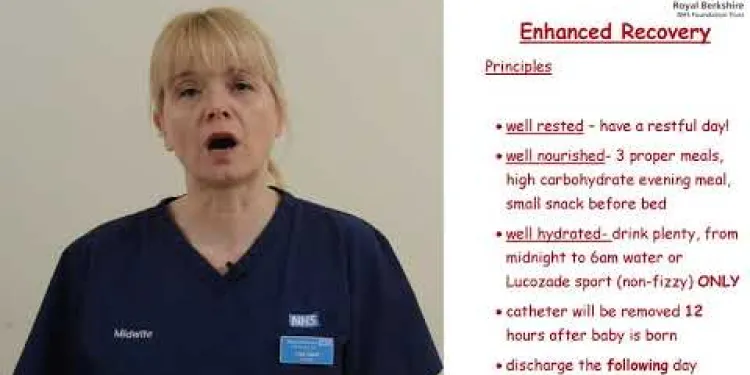
Pre operative Information for Planned Caesarean Birth
Relevance: 24%
-
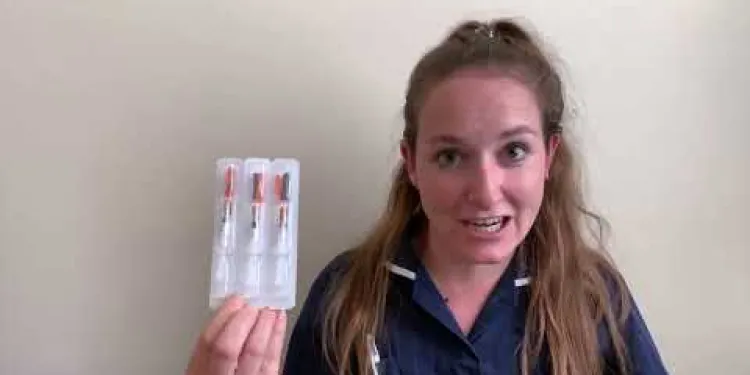
Bariatric Surgery - What to expect when you come to hospital for your operation.
Relevance: 21%
-

In what ways can vision impairments impact driving for those over 70?
Relevance: 17%
-

What is hypotony in the eye?
Relevance: 16%
-

What types of self-tests are available for eye patients?
Relevance: 16%
-

What complications can arise from untreated hypotony?
Relevance: 16%
-

What are the long-term effects of sunburn?
Relevance: 15%
-

What is the difference between a food bank and a food pantry?
Relevance: 13%
-

Are food banks open on weekends?
Relevance: 13%
-

West Midlands LEHN Animated Video on Eye Health
Relevance: 13%
-

Can my partner be with me during the Caesarean section?
Relevance: 13%
-

What are the consequences for banks not complying with transparency standards?
Relevance: 13%
-

NHS Faces Backlash Over Record-Breaking Surgery Waiting Times
Relevance: 13%
-

What factors influence the difference in electricity prices among UK energy companies?
Relevance: 12%
-

What factors influence changes to the energy price cap?
Relevance: 12%
-

Can UK citizens use mobile phones in the EU without extra charges?
Relevance: 12%
-

What is a food bank?
Relevance: 12%
Your Cataract Operation
Understanding Cataracts
A cataract is a condition where the lens of your eye becomes cloudy, causing blurred vision and other visual impairments. This is a common issue, particularly among older adults, and can significantly impact daily activities such as reading, driving, and recognizing faces. In the UK, cataract surgery is a routine and highly effective procedure aimed at restoring clear vision.
Preparing for the Operation
Before your cataract operation, your ophthalmologist will conduct a series of eye tests to measure the size and shape of your eye. You will also discuss any medications you are currently taking, as some may need to be temporarily stopped. Generally, you will be asked not to eat or drink several hours before the surgery. Ensure you arrange for someone to take you home post-operation, as your vision will be temporarily impaired.
The Surgical Procedure
Cataract surgery usually takes around 30 to 45 minutes and is performed as a day procedure, meaning you won't need an overnight stay in the hospital. The most common method is phacoemulsification, where a tiny probe emits ultrasound waves to break up the cloudy lens, which is then removed. A new artificial lens, called an intraocular lens (IOL), is inserted in its place. Anaesthesia is typically local, involving eye drops or an injection to numb the eye.
Post-Operative Care and Recovery
After the operation, you will be given an eye shield to protect your eye and a set of eye drops to prevent infection and reduce inflammation. It's essential to follow your doctor's instructions regarding medication and activities. Most patients experience improved vision within a few days, but full recovery can take several weeks. Avoid heavy lifting, bending over, and strenuous activities during this period to ensure proper healing.
Potential Risks and Complications
Cataract surgery is generally safe, but as with any surgical procedure, there are potential risks and complications. These include infection, bleeding, swelling, retinal detachment, and the possibility of the lens shifting. However, these risks are relatively low, and periodic follow-ups with your ophthalmologist can help detect and address any issues early.
Conclusion
Cataract surgery in the United Kingdom is a well-established and common procedure that significantly improves the quality of life for those affected. By understanding the process, preparing appropriately, and following post-operative care guidelines, you can look forward to clear and improved vision.
Your Cataract Operation
Understanding Cataracts
A cataract is when the lens of your eye gets cloudy. This can make it hard to see clearly. It is common in older people and can make things like reading and driving hard. In the UK, cataract surgery is a simple and helpful way to see clearly again.
Preparing for the Operation
Before your cataract operation, the eye doctor will do some tests on your eyes. You will talk about any medicine you take. You might need to stop some medicine for a little while. Do not eat or drink for a few hours before the operation. Make sure someone can take you home after the operation because your eyesight might not be clear right away.
The Surgical Procedure
Cataract surgery usually takes 30 to 45 minutes. You do not have to stay in the hospital overnight. The doctor uses a tool to break the cloudy lens in your eye. Then they take it out and put a new clear lens in. You will get eye drops or a small injection to make your eye numb, so you don’t feel pain.
Post-Operative Care and Recovery
After the operation, you will get a cover for your eye and some eye drops to stop infection. Follow the doctor's advice about medicine and what you can do. Most people see better in a few days, but full healing might take weeks. Do not lift heavy things or bend over while you heal.
Potential Risks and Complications
Cataract surgery is usually safe, but there can be problems. Possible issues include infection, bleeding, and swelling. The lens might move, or the retina might detach. These issues are rare, and your doctor will check your eyes after the surgery to make sure everything is okay.
Conclusion
Cataract surgery in the UK helps people see better and improves their lives. By knowing what to do before and after the surgery, you can look forward to better vision.
Frequently Asked Questions
What is a cataract?
A cataract is a clouding of the eye's natural lens, which lies behind the iris and the pupil. It often leads to a decrease in vision and can affect one or both eyes.
How do I know if I have a cataract?
Symptoms of cataracts include blurred vision, difficulty seeing at night, sensitivity to light, and seeing 'halos' around lights. A comprehensive eye examination by an optometrist or ophthalmologist is necessary to confirm the presence of cataracts.
When is cataract surgery recommended?
Cataract surgery is recommended when cataracts cause enough vision loss to interfere with daily activities, such as reading, driving, or watching TV. Your eye specialist will advise you based on the severity of your cataract and your visual needs.
What does cataract surgery involve?
Cataract surgery involves removing the cloudy lens and replacing it with a clear artificial lens known as an intraocular lens (IOL). The procedure is generally performed on an outpatient basis under local anaesthesia.
Is cataract surgery safe?
Cataract surgery is generally very safe and is one of the most common and successful surgeries performed. Complications are rare but can include infection, bleeding, and retinal detachment.
How long does cataract surgery take?
The actual surgery usually takes about 15 to 30 minutes. However, you should plan to be at the surgical facility for a few hours to allow for preparation and recovery time.
Will I be awake during cataract surgery?
Yes, you will be awake during the surgery, but you will be given a local anesthetic to numb your eye, as well as sedation to help you relax and feel comfortable.
What should I expect after cataract surgery?
Most people experience improved vision within a few days after surgery. Your eye may be itchy and sensitive, and you may need to wear an eye patch or shield for a few days. Full recovery usually takes about 4 to 6 weeks.
Are there any restrictions after cataract surgery?
You should avoid strenuous activity, heavy lifting, and bending over for a few weeks after surgery. Your doctor will give you specific post-operative instructions to follow.
Will I need glasses after cataract surgery?
Many people find that they need less dependence on glasses after cataract surgery, especially for distance vision. However, you may still need reading glasses or corrective lenses for certain tasks.
Can both eyes be operated on at the same time?
Typically, cataract surgery is performed on one eye at a time, with a few weeks in between procedures to allow for recovery. This helps ensure the best possible outcomes and reduces the risk of complications.
How do I prepare for cataract surgery?
Before surgery, you will need a pre-operative examination to measure the shape and size of your eye. Your doctor may also recommend stopping certain medications. Follow all pre-operative instructions provided by your healthcare team.
Is cataract surgery covered by the NHS?
Yes, cataract surgery is covered by the NHS in the UK for those who meet the necessary clinical criteria. Your GP or optometrist can refer you to an NHS ophthalmologist for assessment.
What are the risks of not having cataract surgery?
Without surgery, cataracts can lead to significant vision loss and eventually blindness. Untreated cataracts can also increase the risk of falls and injuries, and severely impact your quality of life.
Can cataracts come back after surgery?
Cataracts cannot come back once the natural lens has been removed. However, it's possible for the membrane behind the IOL (posterior capsule) to become cloudy, which can be treated with a simple laser procedure called YAG laser capsulotomy.
What is a cataract?
A cataract is when the eye's lens gets cloudy. This can make it hard to see. It is like looking through a foggy window.
If you have trouble reading this, you can use tools like text-to-speech to listen to the words. You can also ask someone to help you understand the words.
A cataract is when the lens in your eye gets cloudy. The lens is behind the colored part of your eye, called the iris, and the black circle, called the pupil. When this happens, it can be hard to see clearly. You can get a cataract in one eye or both eyes.
How can I tell if I have a cataract?
A cataract is when the lens in your eye gets cloudy. This can make it hard to see.
Here are some signs you might have a cataract:
- Your vision is blurry or cloudy.
- It's hard to see at night.
- Lights seem too bright or have a glare.
- Colors look faded.
- Double vision in one eye.
- You keep changing your glasses prescription.
If you think you might have a cataract, it’s a good idea to see an eye doctor. They can help find out what is wrong.
You can use a magnifying glass to help read small print. Audiobooks can help if it’s hard to read.
If you have cataracts, you might notice blurry vision. It can be hard to see in the dark. You might find bright lights too bright, and lights might have glowing circles around them. A special eye doctor, called an optometrist or ophthalmologist, can check your eyes to see if you have cataracts.
When Should You Have Cataract Surgery?
Cataract surgery is when a doctor fixes your eye to help you see better.
You might need this surgery if:
- Things look blurry or fuzzy.
- It's hard to see at night.
- Bright lights hurt your eyes.
- You see double (like two of everything).
If you have these problems, talk to your doctor. They can help you decide if surgery is right for you.
Some things that can help are:
- Talking to a friend or family member for support.
- Writing down questions to ask the doctor.
- Bringing someone with you to the appointment.
If cataracts make it hard for you to see and do things like read, drive, or watch TV, doctors might say you need cataract surgery. Your eye doctor will tell you what is best for you based on how bad your cataracts are and how well you need to see.
What happens in cataract surgery?
Cataract surgery is an eye operation. It is done to help people see better. We can use tools like pictures or videos to understand it more. You can also ask someone to go with you to the doctor to ask questions and get more information.
Cataract surgery is when doctors take out the cloudy part of your eye and put in a new, clear part called an intraocular lens (IOL). You usually go home the same day. They use medicine to make the eye area numb so it won’t hurt.
Is it safe to have cataract surgery?
Cataract surgery is usually very safe.
Doctors do this surgery a lot and are very good at it.
If you have questions, you can ask your doctor.
You can also talk with family or friends for support.
Using pictures can help you understand better.
Cataract surgery is usually very safe. It is one of the most common surgeries and works well. Problems do not happen often but can include infection, bleeding, and issues with the eye's retina.
How long is cataract surgery?
Cataract surgery is when a doctor fixes your eye to help you see better.
The surgery usually takes about 15 to 30 minutes. It is a quick operation!
If you need help reading, you can use a ruler or your finger to follow along. You can also ask someone to read with you.
The surgery takes about 15 to 30 minutes. But you will be at the hospital for a few hours. This gives time to get ready and rest after the surgery.
Will I be awake during cataract surgery?
Cataract surgery happens while you are awake.
But don’t worry! You won’t feel any pain because the doctor will put special eye drops in your eyes to make them numb.
You can listen to music or use a special squeeze ball to help you stay calm during the surgery.
You will be awake during the surgery, but don't worry. The doctor will use medicine to make your eye numb so it won't hurt. They will also give you something to help you feel calm and comfy.
What happens after cataract surgery?
After cataract surgery, your eye might feel a little sore. You can see better as your eye heals.
Here are some things to remember:
- Your eye may feel itchy or uncomfortable for a day or two.
- You might need to wear an eye shield or glasses to protect your eye.
- Try not to rub your eye.
- Take the eye drops your doctor gives you. They help you heal.
- Ask someone to help you with things until you feel better.
Fun tip: Listen to your favorite music or audiobook to relax while healing.
Most people see better a few days after the surgery. Your eye might feel itchy and be sensitive. You might have to wear an eye patch or cover your eye for a few days. It takes about 4 to 6 weeks to get completely better.
What should you avoid after cataract surgery?
After cataract surgery, there are some things you should not do:
- Don't lift heavy things.
- Don't rub your eye.
- Don't swim for a few weeks.
Ask someone for help if you need it. Using reminders on a phone can help you remember these rules.
After your surgery, try not to be too active or do any heavy lifting. Avoid bending over too. Keep doing this for a few weeks. Your doctor will tell you exactly what to do to help you get better.
Will I need glasses after cataract surgery?
After you have surgery for cataracts, you might still need glasses. This is because the surgery helps you see better, but it may not make your vision perfect. Talk to your eye doctor about what is best for you. They can tell you if you need glasses after the surgery.
Here are some things you can do to make it easier:
- Ask your doctor or nurse to explain things in a simple way.
- Use a magnifying glass to read small print.
- Write down what your doctor says to remember it better.
After cataract surgery, many people don't need their glasses as much, especially for seeing things far away. But you might still need reading glasses or other lenses for some tasks.
Can both eyes have an operation at the same time?
Sometimes people need an eye operation.
Doctors can do one eye at a time.
Sometimes, doctors can do both eyes at the same time. It depends on the person and their eyes.
If you need an operation, talk to your doctor.
Your doctor can help you decide what is best.
It can be good to ask a friend or family member to help you understand.
Doctors usually do cataract surgery on one eye first. After a few weeks, they do the other eye. This gives the first eye time to heal and get better. It also helps make sure everything goes well and keeps you safe.
How can I get ready for cataract surgery?
Before you have surgery, the doctor will check your eyes to see their shape and size. The doctor might also tell you to stop taking some medicine. Make sure you listen to all the instructions your doctor gives you before the surgery.
Does the NHS pay for cataract surgery?
Do you have cloudy vision because of cataracts? The NHS can help! They pay for cataract surgery. This means it does not cost you money.
If you have questions, you can talk to your doctor. They will help you understand what to do next.
Tip: Ask a friend or family member to come with you to appointments.
Yes, the NHS in the UK will pay for cataract surgery if you need it. First, your eye doctor or GP will check your eyes. If you need surgery, they will send you to a special eye doctor at the NHS.
If reading is sometimes hard, try using tools that read text out loud. You can also ask someone you trust to help you understand.
What can happen if you do not have cataract surgery?
Cataracts make your eyes cloudy. If you do not get surgery, it can get worse. Here is what might happen:
- Your eyesight might get blurry.
- It could be harder to see things clearly.
- You might find it difficult to see at night.
- Reading might be hard.
- You could trip or fall more easily.
If you need help, ask a family member or a friend. They can help you understand and make choices. Talking with your doctor is important too. They can explain what is best for your eyes.
If cataracts are not treated with surgery, they can make you see very poorly. You could even go blind. Cataracts can also make you more likely to fall and get hurt. They can make life much harder.
Can cataracts return after an operation?
Once the cloudy eye lens (cataract) is taken out, it can't come back. But sometimes, the back part of the eye lens gets cloudy later on. This can make it hard to see again. If this happens, doctors can fix it with a special laser treatment called YAG laser capsulotomy. This treatment is quick and easy.
If you find reading hard, try using audiobooks or text-to-speech apps. These tools read out loud for you. Highlighters can help you pick out important parts of the text. You can also take breaks if you feel tired.
Useful Links
This website offers general information and is not a substitute for professional advice.
Always seek guidance from qualified professionals.
If you have any medical concerns or need urgent help, contact a healthcare professional or emergency services immediately.
- Ergsy carfully checks the information in the videos we provide here.
- Videos shown by Youtube after a video has completed, have NOT been reviewed by ERGSY.
- To view, click the arrow in centre of video.
- Most of the videos you find here will have subtitles and/or closed captions available.
- You may need to turn these on, and choose your preferred language.
- Go to the video you'd like to watch.
- If closed captions (CC) are available, settings will be visible on the bottom right of the video player.
- To turn on Captions, click settings .
- To turn off Captions, click settings again.
More Items From Ergsy search
-

Your Cataract Operation
Relevance: 100%
-

Cataract surgery can resolve life long short-sightedness?!
Relevance: 57%
-

On the day of your cataract surgery
Relevance: 55%
-

Having an operation at the Children’s Centre
Relevance: 39%
-

Having an anaesthetic for your operation - for over 8s
Relevance: 37%
-

What to expect on the day of your operation
Relevance: 36%
-

Having an operation or procedure at the Royal Free London
Relevance: 36%
-

How often are operation waiting times updated?
Relevance: 36%
-

Your Operation at East Surrey Hospital
Relevance: 35%
-

Are there specific resources for urgent operation waiting times?
Relevance: 35%
-

Are there apps available to check operation waiting times?
Relevance: 34%
-

Does my doctor have access to operation waiting times?
Relevance: 34%
-

Can I get information on average waiting times for operations?
Relevance: 34%
-

Can I find operation waiting times in healthcare performance reports?
Relevance: 33%
-

Having an operation
Relevance: 33%
-

Having an operation in Oxford Children's Hospital with YiPpEe
Relevance: 33%
-

Do private hospitals have shorter waiting times for operations?
Relevance: 32%
-

How can I find current waiting times for operations in my local hospital?
Relevance: 31%
-

How can I find information on waiting times for an operation in my area?
Relevance: 30%
-

Are waiting times for operations the same across all hospitals?
Relevance: 29%
-

Can I appeal a long waiting time for my operation?
Relevance: 29%
-

What steps can a company take if shareholder disputes begin to impact business operations?
Relevance: 26%
-

Thyroid eye disease. Squint surgery - The operation
Relevance: 25%
-

Pre operative Information for Planned Caesarean Birth
Relevance: 24%
-

Bariatric Surgery - What to expect when you come to hospital for your operation.
Relevance: 21%
-

In what ways can vision impairments impact driving for those over 70?
Relevance: 17%
-

What is hypotony in the eye?
Relevance: 16%
-

What types of self-tests are available for eye patients?
Relevance: 16%
-

What complications can arise from untreated hypotony?
Relevance: 16%
-

What are the long-term effects of sunburn?
Relevance: 15%
-

What is the difference between a food bank and a food pantry?
Relevance: 13%
-

Are food banks open on weekends?
Relevance: 13%
-

West Midlands LEHN Animated Video on Eye Health
Relevance: 13%
-

Can my partner be with me during the Caesarean section?
Relevance: 13%
-

What are the consequences for banks not complying with transparency standards?
Relevance: 13%
-

NHS Faces Backlash Over Record-Breaking Surgery Waiting Times
Relevance: 13%
-

What factors influence the difference in electricity prices among UK energy companies?
Relevance: 12%
-

What factors influence changes to the energy price cap?
Relevance: 12%
-

Can UK citizens use mobile phones in the EU without extra charges?
Relevance: 12%
-

What is a food bank?
Relevance: 12%


